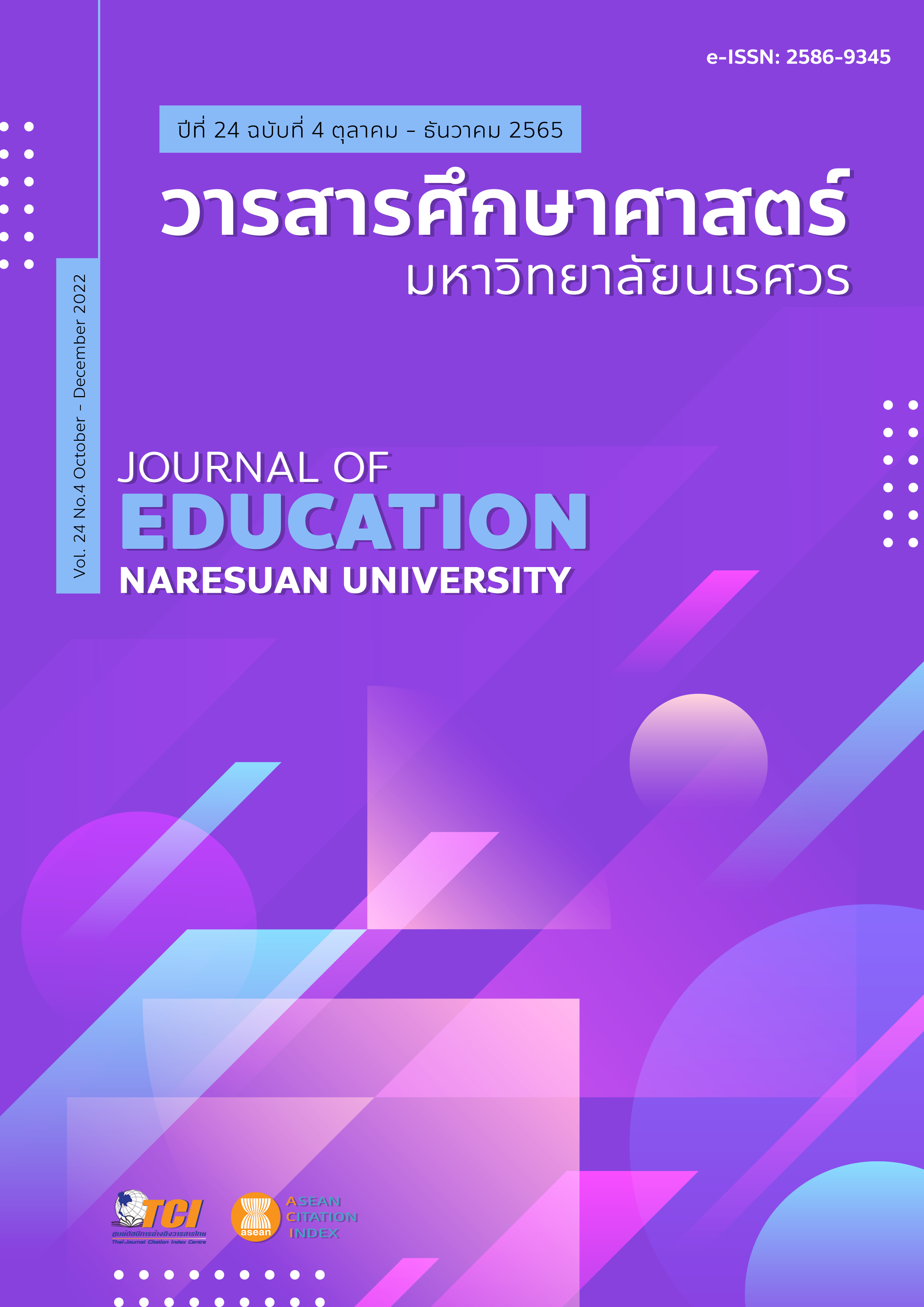A STUDY AND COMPARISON OF THE LEARNER COMPETENCY IN 21ST CENTURY IN PRIMARY SCHOOL LEVEL การศึกษาและเปรียบเทียบสมรรถนะผู้เรียนในศตวรรษที่ 21: ระดับประถมศึกษา
Main Article Content
Abstract
The objectives of this research were to study, analyze and compare learning competencies in 21st century of primary school learners in Australia, Canada, Singapore and Thailand. The research was conducted by using documentary research methods, through studying information from the current curriculum. The researcher analyzed and compared the competencies of the learners in the 21st century from the core and course competencies. The data were analyzed by content analysis and inductively concluded, then checked for the validity and appropriacy by 5 experts. The results showed that: 1) core competencies of the primary school learners in the 21st century included seven competencies in Australia , three competencies in Canada (British Columbia, five social and emotional competencies and three necessary skills for life in the 21st century in Singapore, and five competencies in Thailand; 2) the results of the analysis and comparison of the core competencies of all four countries revealed that they had three similar competencies: (1) information technology competency, (2) thinking competency, and (3) communication and collaboration competency and the results of the analysis and comparison of the subject competencies showed that the learner's course competencies were similar among the four countries.
Article Details

This work is licensed under a Creative Commons Attribution-NonCommercial-NoDerivatives 4.0 International License.
The owner of the article does not copy or violate any of its copyright. If any copyright infringement occurs or prosecution, in any case, the Editorial Board is not involved in all the rights to the owner of the article to be performed.
References
Anaaiadou, K, & Claro, M (2009). 21st century skills and competences for new for millennium learners in OECD countries. OECD publishing.
Anuwatprakit, S. (2014). Management strategies to enhance the competencies of students in schools under the jurisdiction of catholic education council of Thailand (Doctoral dissertation). Bangkok: Chulalongkorn University. [in Thai]
British Columbia Education Ministry. (2020). British Columbia Curriculum. Retrieved August 22, 2020, from https://curriculum.gov.bc.ca/
Khamman, S. (2008). Report on the study of current conditions, problems and trends in global society changes under the globalization of society. Bangkok: Office of the Education Council. [in Thai]
Ministry of Education. (2018). Educational standards, early childhood level, basic education level and the level of basic education, special education center. Retrieved from http://www.ratchakitcha.soc.go.th/DATA/PDF
Office of the Basic Education Commission. (2010). Basic Education Core Curriculum B.E. 2551 (A.D. 2008). Bangkok: The Agricultural Cooperative Federation of Thailand. [in Thai]
Office of the Education Council. (2019). Report on the results of research and development of a competency framework for early elementary school students for basic education courses. Bangkok: 21 Century. [in Thai]
Rotter, J. B. (1982). The development and applications of social learning theory. New York: Praeger.
Sektrakul, K. (2020, August 16). A new way in Thailand and environmental problems. Thansettakij News, 5.
Singapore Ministry of Education. (2020). Singapore Curriculum. Retrieved August 20, 2020, from https://www.moe.gov.sg/primary/curriculum/syllabus
The Australian Curriculum, Assessment and Reporting Authority. (2020). Australian Curriculum. Retrieved July 12, 2020, from https://www.australiancurriculum.edu.au/resources/
The Partnership for 21st Century Skills. (2008). 21st century skills, education & competitiveness. Tucson, AR: Author.


